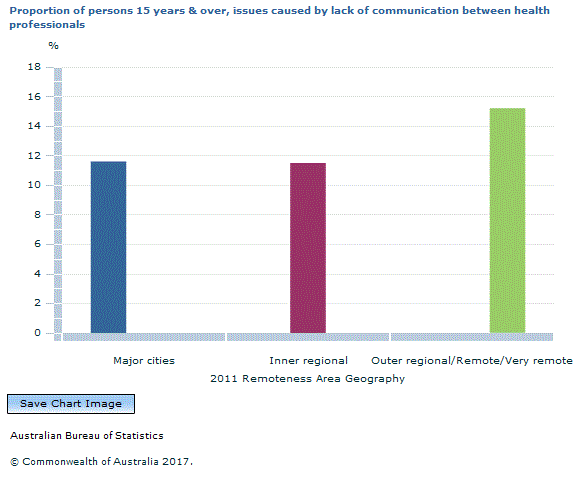The proportion of people who saw three or more health professionals for the same condition generally increased with age. Nearly one quarter of people (23%) aged 65 years and over had seen three or more health professionals for the same condition, compared with one in seven people (15%) aged 15 to 64 years. People who rated their health as fair or poor were more likely to have seen three or more health professionals for the same condition (39% compared with 13%). Likewise people with a long term health condition were more likely to have seen three or more health professionals for the same condition than those without (27% compared with 7%). See Tables 23.2 and 24.2 in Downloads.
Of those who saw three or more health professionals for the same condition, seven in ten people (71%) reported that a health professional helped coordinate their care. For these people, a GP was most likely to coordinate care (58%), followed by a medical specialist (26%). The proportion of people who reported that a GP helped to coordinate their care has decreased since 2015-16 (58% compared with 61%). Of those who received coordination of care, 96% reported that it was helpful, either to a large extent (70%) or to some extent (26%). See Table 22 in Downloads.
Among those who saw three or more health professionals for the same condition, 12% reported that there were issues caused by a lack of communication between the health professionals. Those with a long term health condition were more likely to report issues caused by a lack of communication between health professionals than those without (13% compared with 8%). Those living in outer regional, remote or very remote areas were more likely to report having issues caused by a lack of communication between health professionals than those living in major cities (15% compared with 12%). These patterns were similar in 2013-14, 2014-15 and 2015-16. See Table 24.2 in Downloads.
 |  Print Page
Print Page
 Print All
Print All
 Quality Declaration
Quality Declaration 